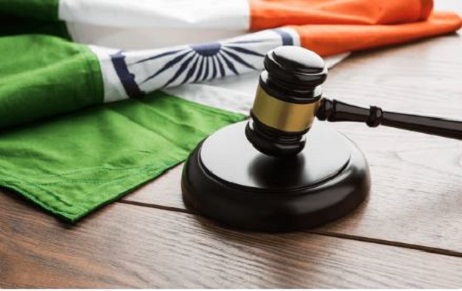Introduction Special Purpose Acquisition Companies (SPACs), also known as “blank-check companies”, are publicly listed traded…
The Controversy Around Facebook And Political Advertising
Facebook has once again become the focal point of controversy with the social networking site refusing to fact-check the political advertisements it displays on its platform.Facebook has come under intense scrutiny due to the fact that the political advertising by the social networking company is in direct contravention to free speech and expression of people which due to the spread of misinformation by the platform has resulted in a large sections of voters being influenced by the ads. It is a cause of concern as digital advertising by political parties aims at a targeted audience to gain political advantage over the competitors. Facebook CEO Mark Zuckerberg defended the political advertising by the world’s biggest social networking by explaining that these ads won’t be going through scrutiny in any manner and that Facebook won’t be fact-checking the ads from the politicians reasoning that these ads constitute only a negligible amount of $55.8 billion of the California based social networking company’s total revenue adding that the ordinary person has been given a voice by Facebook and that the company stood for free expression.[1] This practice of unabated and unrestrained practice of political advertising by Facebook has attracted the disapproval of numerous politicians including Senator Elizabeth Warren who accused the company of being a “disinformation -for-profit-machine”[2] and Marc Benioff, chief executor of Salesforce stating that “the social network site needs to be held accountable for propaganda on its platform”.[3] The angst pertaining to these ads by Facebook is exacerbated by the recent reports by certain organizations which quite conspicuously depict the influence these ads has on the targeted audience. A study conducted by the Centre for the Study of Developing Societies (CSDS) which targeted to find the influence of political advertising by Facebook in India found that one in three-person was into reading political news on social media presenting a rather unexpected nature of the social media users in India who are not swayed by the misinformation spread by the political nature of the ads on social media. Another report conducted by the Facebook Ad Library Report shows the sheer magnitude of money spent by national parties such as BJP which amounted to around Rs 4.3 Crore on political advertisements on Facebook itself.[4] This is evident of the reliance placed by these parties to gain some ground on their competitors during elections by enticing the social media users to be part of their ideologies by spreading propaganda through these social media sites, especially Facebook which has always been a major platform for these entities to manipulate the people accordingly, thus stripping them of their very autonomy to have their own self-constructed thinking mechanism. It also depicts that these parties are increasingly depending on these social networks to assemble a system fraught with ever increasing chances of changing the common citizens political inclination towards a specific ideology.Moreover, Facebook is under excessive pressure due to the ban imposed by Twitter on all kinds of political ads with its CEO Jack Dorsey criticizing political ads describing them as a “challenge to civic discourse at an increasing velocity, sophistication and overwhelming scale”.[5]He also added that that the political messages should be earned and not bought which is exactly the case with companies such as Facebook who are catering to the political appetite of various political entities with their policy of showing political ads proving detrimental to the free expression of people depriving them of the very right essential to the ethos of a democracy.The step taken by Twitter is in stark contrast to that adopted by Facebook which is adamant on continuing to run ads, even false ones on the social networking site in consonance with its definition of ‘free speech’. It has recently come up with a sweeping policy wherein the reasoning given by the company for not fact checking political ads was that they are newsworthy and in the public’s interest to be informed. Facebook’s approach to political ads is under intense scrutiny as it is providing impetus to change in people’s approach in their political decisions, thus proving baneful to their free speech and expression which is an indispensable character of a democratic system. Moreover, it is feared that the unrestrained paid political ads run by Facebook could disrupt the equilibrium in the political landscape resulting in disparity between different parties, thus giving an edge to the parties willing to spend more than others on digital advertising in order to attract a major portion of social media users to add to its supporters. This would in turn have a deleterious effect on the very essence of democracy which hinges on the principle of freedom of free speech and expression exercised by the people which in the case of Facebook is being contravened ruthlessly since the people are being manipulated by the political parties which are spreading misinformation via the social platform, hence distorting their political views.
Author: Bitthal Sharma 3rd Year, Rajiv Gandhi National University of Law(RGNUL), Intern at Khurana & Khurana, Advocates and IP Attorneys. In case of any queries please contact/write back to us at [email protected]
References:
[1]Mike Isaac, Why Everyone Is Angry at Facebook Over Its Political Ads Policy(Nov.24, 2019, 2:09 PM), https://www.nytimes.com/2019/10/30/technology/twitter-political-ads-ban.html?module=inline.
[2]Cecilia Kang, Defiant Zuckerberg Says Facebook Won’t Police Political Speech(Nov.24, 2019, 2:12 PM), https://www.nytimes.com/2019/10/17/business/zuckerberg-facebook-free-speech.html?module=inline.
[3]Ibid.
[4]Sreemoyee Mukherjee, Why Facebook Should Ban Political Ads in India(Nov.24, 2019, 2:19 PM), https://livewire.thewire.in/politics/why-facebook-should-ban-political-ads-in-india/.
[5]Supranote1.



